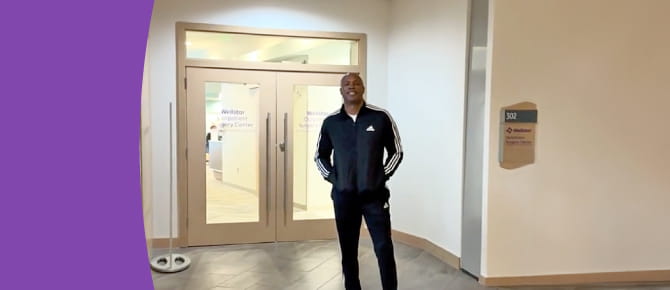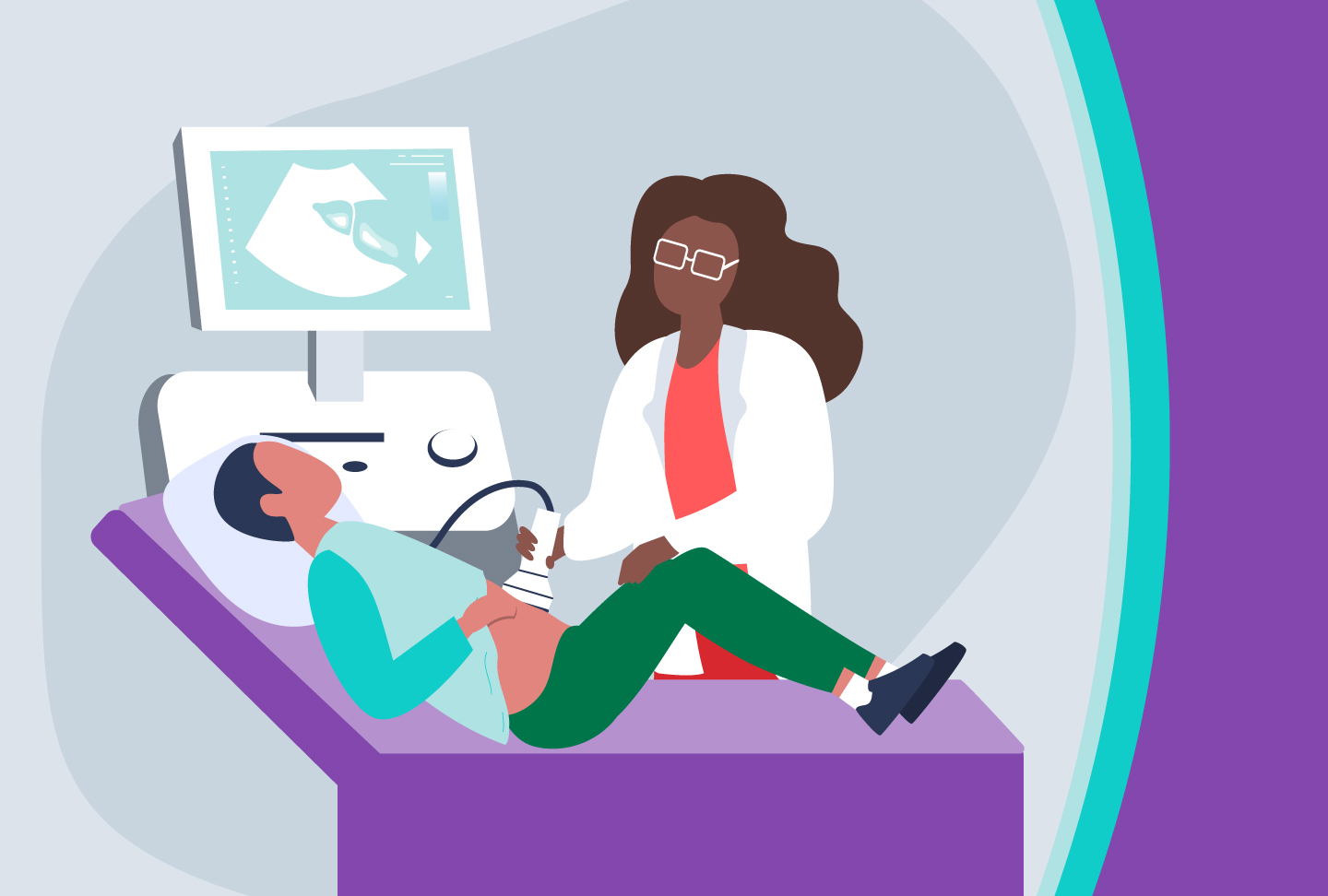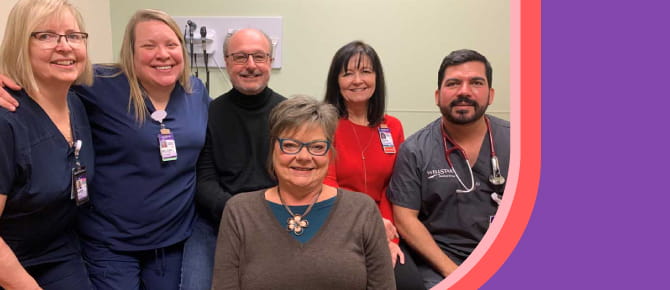
Wellstar Digestive Health
Helping you feel and function your best
Digestive health covers a host of gut wellness issues which can range from the common to the more complex. Beginning with screening and diagnosis on through treatment and recovery, our experts are here to help you take control when a digestive disorder keeps you from thriving.
- Wellstar Digestive Health
- About
- PeopleCare
- Digestive Health Locations
- News
About Us
- Overview
- Our Care Team
- Screening & Diagnosis
- Treatments
- Conditions We Treat
- Patient Education Resources
Comprehensive care for common and complex digestive disorders
Bothersome digestion-related symptoms fall under a wide umbrella of health concerns. Our board-certified gastroenterologists offer a full range of services to diagnose and treat both common and complex disorders of your esophagus, stomach, small intestine, colon, gallbladder, pancreas and liver.
At Wellstar, your health and well-being are our top priorities. We provide comprehensive care that includes state-of-the-art technology and diagnostic procedures, advanced nonsurgical and surgical treatments, and a caring team of experts who work side-by-side to help you have the best outcome and the healthiest future.
Digestive health experts guide your care
Experienced, compassionate providers care for you at Wellstar. They work with each other, and with your primary care physician, to deliver coordinated services focused on your needs. Members of our team include:
- Colorectal surgeons
- Gastroenterologists
- General surgeons
- Hepatologists
- Nurses
- Oncologists
- Pathologists
- Psychologists
- Radiologists
- Registered dietitians
- Social workers
As needed, we draw on the expertise of other Wellstar specialists to ensure you get the best care.
The start of your journey to better health: tests for prevention and detection
Wellstar offers a complete line of tests and procedures to detect and diagnose digestive health issues. A timely, accurate diagnosis is the first step in getting you the treatment you need to address your symptoms and, often, prevent your condition from progressing to something more serious.
Included in these tests are screening exams for colorectal cancer, one of the most common cancers found in both men and women in the U.S.
The United States Preventive Services Task Force has recommended that screening for anyone who is at average risk should start earlier at age 45, instead of age 50. The change is due to the rising incidence of colon cancer in younger patients.
According to the American Cancer Society,
of all cancer deaths in people under age 50, colorectal cancer is now No. 1 in men and No. 2 in women.
It’s best to talk with your doctor about when to begin screening and what type of screening test to have.
Key diagnostic and screening tests we offer include:
Barium enema
A barium enema is a type of X-ray exam that allows doctors to see the lower portion of your gastrointestinal tract with the aid of a special liquid that is introduced into your rectum.
Capsule endoscopy
Capsule endoscopy is a test in which you swallow a special pill with a built-in wireless camera. As the pill moves through your digestive tract, it takes pictures that are transmitted to a recording device you wear on your waist. The capsule is especially helpful for viewing areas of your small intestine that aren’t easily visible with other tests. After it moves through your digestive tract, it passes naturally from your body.
Colonoscopy
During a colonoscopy, a thin flexible tube with a tiny video camera on its tip is passed through your rectum into your colon (large intestine). By viewing the images transmitted to a monitor, doctors can identify problems in the colon, including colon cancer and colon polyps. Polyps are growths that are often harmless but can sometimes turn into cancer. During a colonoscopy, doctors can remove polyps, which may prevent cancer from developing. If you do have cancer, early detection and treatment often leads to better outcomes.
Endoscopic retrograde cholangiopancreatography (ERCP)
ERCP involves passing a thin tube called an endoscope via the esophagus into the duodenum, the portion of your small intestine just beyond your stomach. The endoscope contains a camera that enables doctors to view the area. It also makes it possible to inject a special dye that helps them see your bile and pancreatic ducts. With the aide of X-rays, doctors can identify stones, blockages or areas of narrowing during this procedure.
Endoscopic ultrasound
Endoscopic ultrasound involves passing an endoscope (a thin flexible tube) down your throat. A special tool on the tip of the tube produces sound waves that are translated into images of your digestive tract.
Esophageal manometry
Esophageal manometry involves a tube that’s placed in your nose and down your esophagus. It helps determine how well your esophagus is working and is helpful in evaluating problems related to swallowing and heartburn.
Esophageal pH monitoring
Esophageal pH monitoring allows doctors to track how often stomach acid enters your esophagus and how long it remains there. This test involves a tube with a monitor that’s passed through your nose or mouth, or a monitoring device that’s placed in your esophagus.
Flexible sigmoidoscopy
Flexible sigmoidoscopy is a test much like colonoscopy, but it examines only the lower portion of the colon.
Hydrogen breath test
A hydrogen breath test involves analyzing your breath for certain gases, including hydrogen. It can help us determine if you have problems such as lactose intolerance or an overgrowth of bacteria in your small intestine.
Upper endoscopy
Upper endoscopy is performed by passing a thin flexible tube called an endoscope with a camera on its tip down the esophagus. Images are transmitted to a monitor, allowing doctors to visualize your upper digestive tract. In some cases, doctors pass special tools through the endoscope that allow them to treat certain conditions during the procedure.
Virtual colonoscopy
Virtual colonoscopy is an option for colorectal cancer screening in some people. It uses a CT scan to create detailed images of the inside of your colon and rectum. However, if the test identifies suspicious areas, it’s not possible to remove the growths during the procedure as it is with a traditional colonoscopy.
Easing your symptoms, improving your health
The many different types of digestive disorders mean there can be many different treatments. Our team brings their unique expertise to your care. They collaborate to develop a personalized treatment plan for you and your condition. As necessary, they’ll adjust the plan, always keeping your needs in mind.
Dietary changes
Sometimes changing your diet or the way you eat or drink can improve certain digestive disorders. Our registered dietitians can guide you in making dietary changes that are both beneficial and tailored to your tastes and preferences.
Lifestyle modifications
Lifestyle changes such as stopping smoking, getting more sleep and exercise, managing stress and losing weight can play an important role in treating many digestive health issues. Our team can guide you in making positive lifestyle changes.
Medication
Your doctor may recommend prescription or over-the-counter medications. There are a variety of drugs that may be helpful, depending on your specific situation. In some cases, changing your existing medications or supplements can be beneficial.
Minimally invasive procedures
We use many treatments to correct problems within your digestive tract that do not require surgery. Often, they involve endoscopic procedures. Among these minimally invasive treatments are:
- Ablation therapy uses heat or cold to destroy precancerous cells in people with Barrett’s esophagus.
- Esophageal dilation involves stretching a narrowed esophagus, making it easier for food to pass.
- Transoral incisionless fundoplication is an endoscopic procedure that treats gastroesophageal reflux disease.
Surgery
For many conditions, surgery is the best treatment option. You can rest easier knowing that our surgeons stay current on the latest surgical advances and procedures, ensuring you receive the most up-to-date care. Whenever possible, our team will also strive to use minimally invasive procedures that require only small incisions. When compared to traditional gastrointestinal operations, these procedures generally cause less pain, have fewer complications and result in a shorter hospital stay and recovery.
Conditions We Treat
- Cirrhosis
- Colon polyps
- Colon cancer
- Constipation
- Diarrhea
- Crohn's disease
- Ulcerative colitis
- Gastroesophageal reflux disease (GERD)
- Dysphagia
- Hepatitis
- Irritable bowel syndrome
- Liver cancer
- Peptic ulcers
- Pancreatitis
Patient Education Resources
Learn more about conditions and treatments related to digestive health.Testing Information
- Colonoscopy
- Colonoscopy Sutab prep
- Colonoscopy Suprep prep
- Colonoscopy Plenvu prep
- Endoscopic retrograde cholangiopancreatography (ERCP)
- Esophagogastroduodenoscopy (EGD)
- Bravo Procedure
- Small Bowel Capsule Endoscopy
GERD Information
- Gastroesophageal Reflux Disease (GERD)
- Barrett's Esophagus
- Barrett's Esophagus and Dysplasia
- Eosinophilic Esophagitis
Celiac Disease Information
Constipation and IBS Information
- Irritable Bowel Syndrome (IBS)
- Constipation
- Dietary Suggestions to Help Manage Constipation
- FODMAP Eating Plan











